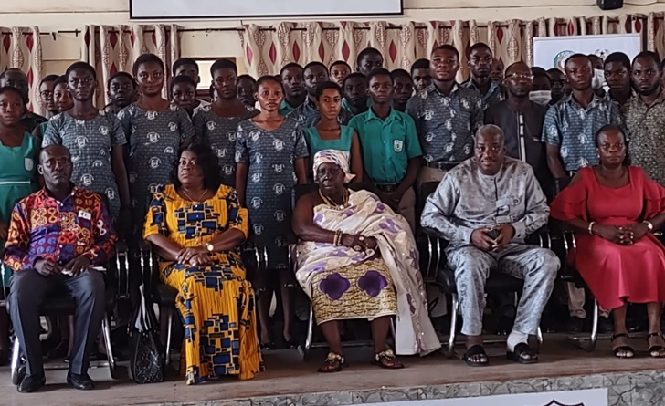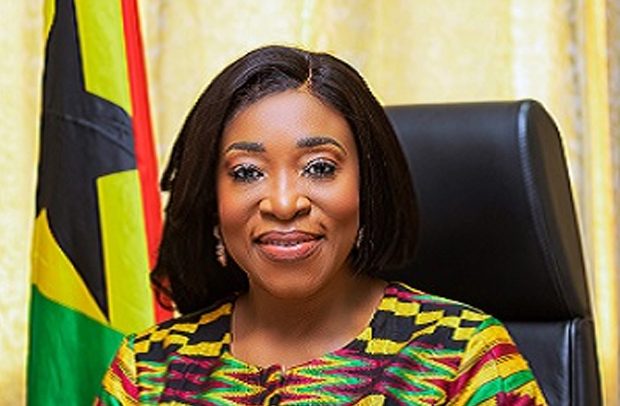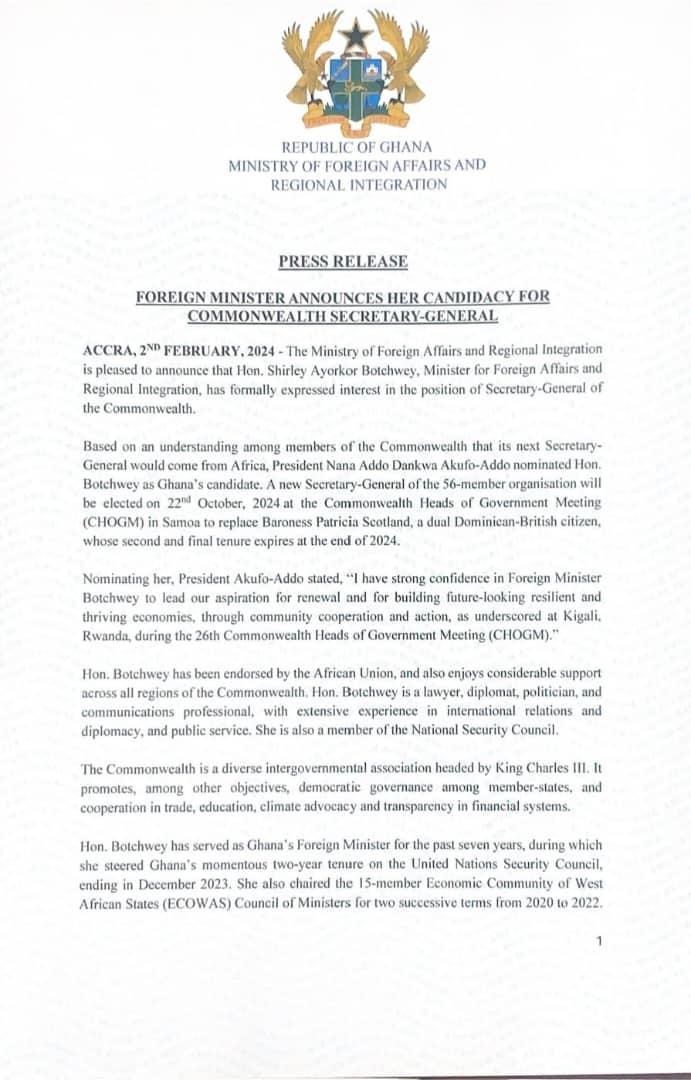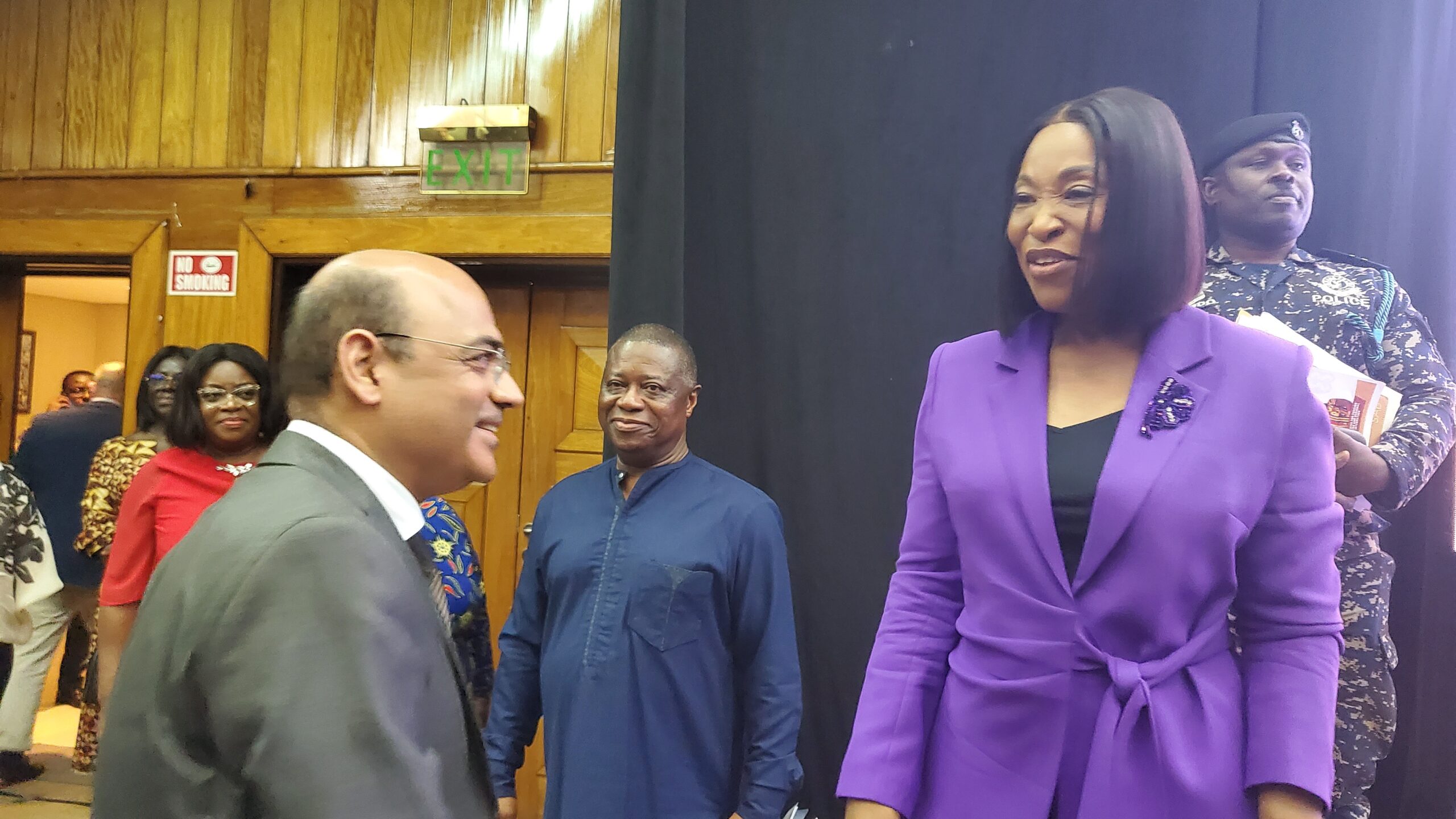
The Government of Ghana is committed to working with the ECOWAS Commission to ensure the implementation of the protocol of free movement for the benefit of all ECOWAS member states.
To this end, the country is proposing that joint programmes between and among member states be enhanced by the Commission to minimise or eradicate the impediments posed to regional trade.
These were the words of Ghana's Minister for Foreign Affairs and Regional Integration, Ms. Shirley Ayorkor Botchwey, at a two-day advocacy and sensitisation campaign on free movement and migration within the ECOWAS region, which started on Thursday in Accra.
Apart from presentations on the ECOWAS protocol on free movement and migration, sensitisation programmes were held for transporters at Kwame Nkrumah Circle, local authority and law enforcement officer at the Police Headquarters, cross border traders at Tudu and traders at the Accra Arts Center.
Ms. Botchwey, whose speech was read on behalf said Ghana, in 2018 began the process of issuing ECOWAS Identity Cards as a first step of ensuring the implementation of the protocol on free movement, adding the National Identification Authority has issued 560, 000 cards and would operationalize their usage by March 2020.
Besides, she said, Ghana has also made it easier for people and goods to move freely throughout the country by removing several security checkpoints on the country's highways.
Regardless of this, she indicated that the country was committed to ensuring that the security of its borders was not compromised.
Ms. Botchwey said the colonial division of Africa had contributed a lot in limiting the free movement of the people in the region. "Enforced rules and regulations by national institutions have also resulted in unprecedented changes and distortions which have also restricted the free movement of people and economic activities. These developments have contributed to the prevalence of poverty and underdevelopment in the region," she added.
She cited challenges to the implementation of the protocol on free movement as the lack of knowledge of the rights and responsibilities enshrined in the ECOWAS free movement protocol, irregular migration, transnational crime, such as human trafficking and vulnerability of ECOWAS community citizens, migrants and travelers within the ECOWAS region.
The rest are the lack of valid travel documents and identification cards for community citizens, migrants and travelers, high level of harassment and extortion of money at the border post and vulnerability of cross-border traders and marketers.
Dr. Tony Luka Elumelu, ECOWAS Directorate of Free Movement, maintained that citizens from the ECOWAS community were not foreigners but rather community citizens, he, therefore, urged members states to recognise this and trial criminals were the committed crimes rather deporting them to their mother countries.
Read Full Story


















Facebook
Twitter
Pinterest
Instagram
Google+
YouTube
LinkedIn
RSS